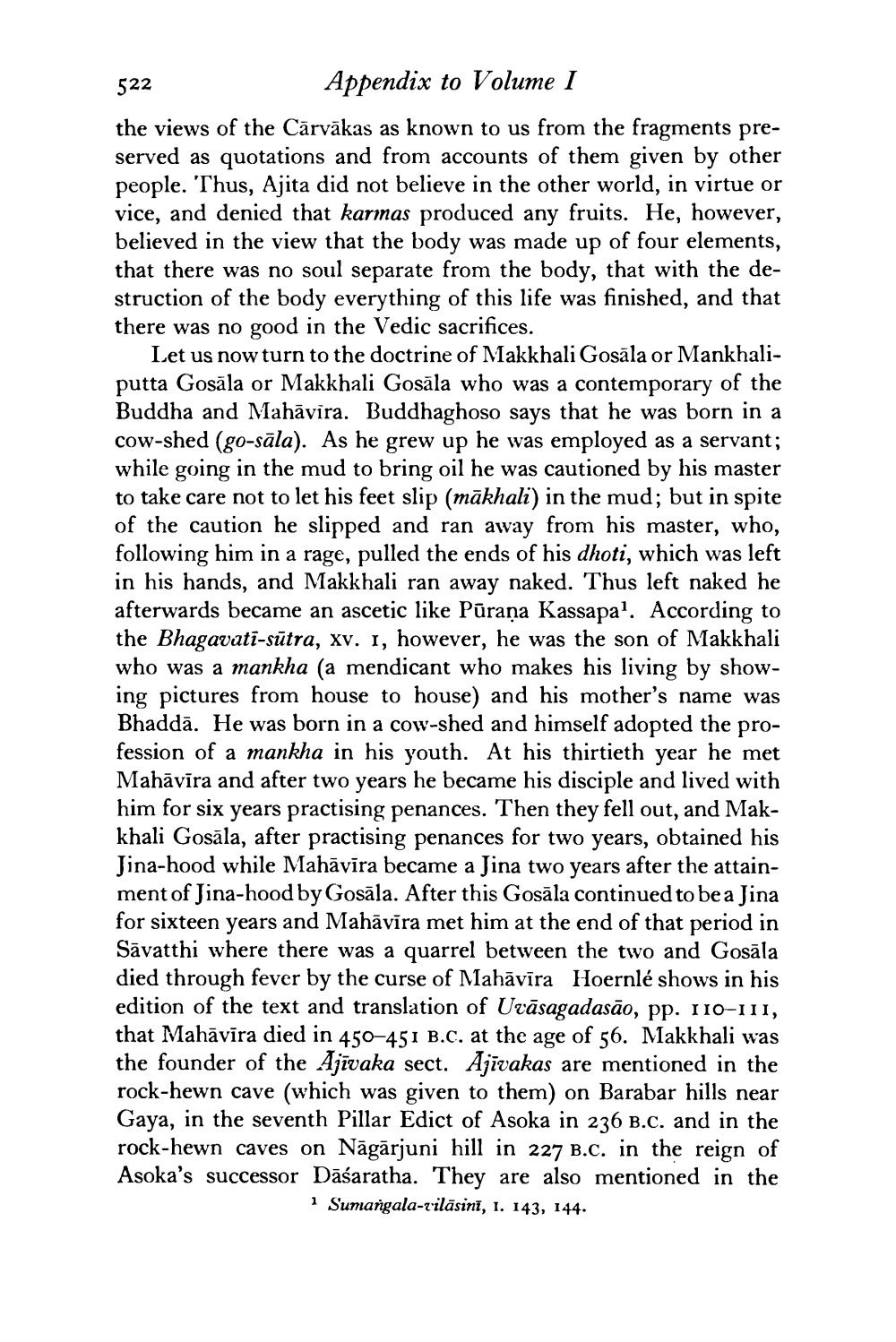________________
522
Appendix to Volume I
the views of the Cārvākas as known to us from the fragments preserved as quotations and from accounts of them given by other people. Thus, Ajita did not believe in the other world, in virtue or vice, and denied that karmas produced any fruits. He, however, believed in the view that the body was made up of four elements, that there was no soul separate from the body, that with the destruction of the body everything of this life was finished, and that there was no good in the Vedic sacrifices.
Let us now turn to the doctrine of Makkhali Gosāla or Mankhaliputta Gosāla or Makkhali Gosāla who was a contemporary of the Buddha and Mahāvīra. Buddhaghoso says that he was born in a cow-shed (go-sāla). As he grew up he was employed as a servant; while going in the mud to bring oil he was cautioned by his master to take care not to let his feet slip (mākhali) in the mud; but in spite of the caution he slipped and ran away from his master, who, following him in a rage, pulled the ends of his dhoti, which was left in his hands, and Makkhali ran away naked. Thus left naked he afterwards became an ascetic like Pūraņa Kassapa?. According to the Bhagavati-sūtra, xv. I, however, he was the son of Makkhali who was a mankha (a mendicant who makes his living by showing pictures from house to house and his mother's name was Bhaddā. He was born in a cow-shed and himself adopted the profession of a mankha in his youth. At his thirtieth year he met Mahāvīra and after two years he became his disciple and lived with him for six years practising penances. Then they fell out, and Makkhali Gosāla, after practising penances for two years, obtained his Jina-hood while Mahāvīra became a Jina two years after the attainment of Jina-hood by Gosāla. After this Gosāla continued to be a Jina for sixteen years and Mahāvīra met him at the end of that period in Sāvatthi where there was a quarrel between the two and Gosāla died through fever by the curse of Mahāvīra Hoernlé shows in his edition of the text and translation of Urāsagadasāo, pp. 110-111, that Mahāvīra died in 450-451 B.C. at the age of 56. Makkhali was the founder of the Ajīvaka sect. Ajīvakas are mentioned in the rock-hewn cave (which was given to them) on Barabar hills near Gaya, in the seventh Pillar Edict of Asoka in 236 B.C. and in the rock-hewn caves on Nāgārjuni hill in 227 B.c. in the reign of Asoka's successor Dāśaratha. They are also mentioned in the
1 Sumangala-vilāsini, I. 143, 144.




